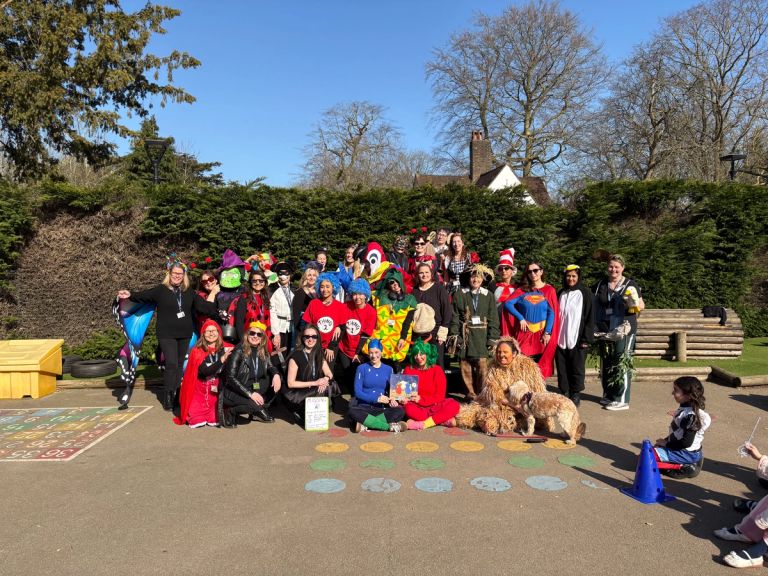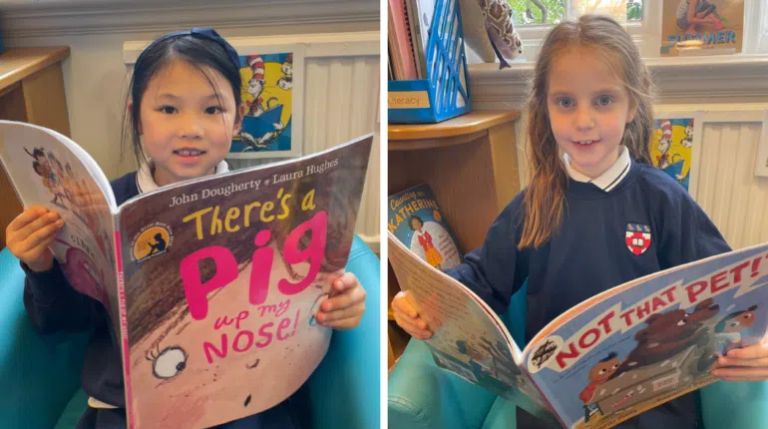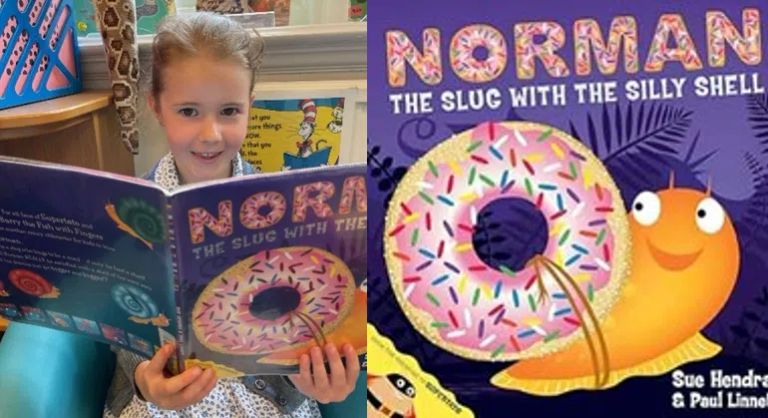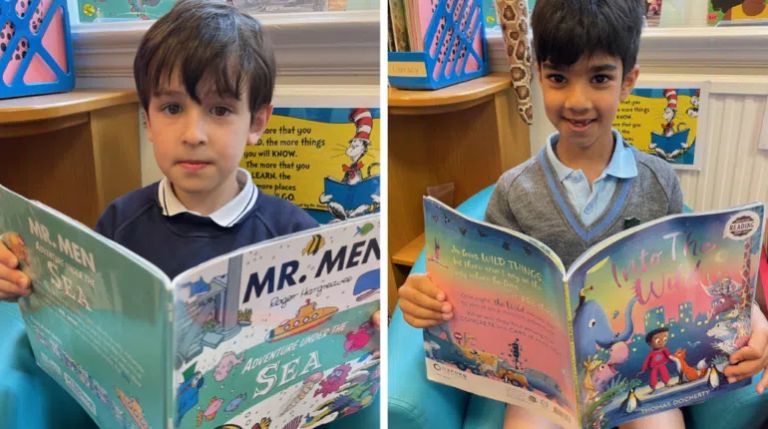- /
- News
- /
- Book of The Week: November 29

Book of The Week
This week, our Junior Librarian Leonardo, from Owl class, recommends one of his favourite genres of books – non-fiction. As it is our annual celebration of Non-Fiction November, his recommendation is particularly apt.
Leonardo recommends Volcanoes by Stephanie Turnbull.
Leonardo’s reason for his choice:
“I like to learn about different things and this Volcanoes book taught me lots of new information.”

Mrs Harvey would also support Leonardo’s choice. She always encourages the borrowing of non-fiction books. Non-fiction books are a popular choice by many of our Grimsdell borrowers and in our library, we have a huge variety of books on diverse topics.I have written previously about the importance of non-fiction in the development a child’s literacy skills.
Non-fiction material is the basis of the majority of our national curriculum – history, science, geography and many more subjects depend upon it. Yet the benefits of reading non-fiction books are rarely extolled in the classroom and children are taught that reading for pleasure equates to reading fiction. Often, the only non-fiction books students will encounter are textbooks. Those who don’t enjoy fiction are led to think that they don’t enjoy reading – but this is not the case, they simply haven’t found the right books to engage them. Fortunately, in Grimsdell, we place equal value on fiction and non-fiction books. This literature is not only widely available in our library but also forms an integral part of our reading basket provision in class.
Encouraging your child to read non-fiction – as well as fiction – can benefit their learning enormously. Non-fiction books on topics that overlap with and expand upon what is being learnt at school will engage a child’s natural curiosity. It could even spark a lifelong love of a subject. One of the major advantages of reading non-fiction books from a young age is the way they will nurture and encourage academic growth by providing super-curricular knowledge and a greater understanding of our world. Material explored can offer new perspectives on and insights into both historical and current affairs: books on nature could lead to an awareness of climate change, or a biography of a famous figure could open eyes to different historical periods. Even reading The Guinness Book of World Records could create an interest in a new sport, culture or hobby.
Our second book of the week, recommended by the Junior Librarian Inaya, is an absorbing and exhilarating fiction story by Tom Fletcher.
Inaya recommends There’s a Dinosaur in Your Book written and illustrated by Tom Fletcher.
Inaya tells us: “This is a very noisy story with a little dragon stomping through the pages … I like it because it is fun and has a happy ending!”

Mrs Harvey would also recommend this story – we have a wide range of Tom Fletcher books in our library ranging from superheroes to unicorns and aliens! The interactive nature of these stories appeal to all our Grimsdell children. In this interactive adventure, the reader meets a little dinosaur stomping through the book. She’s bored and making a LOT of noise! The reader is encouraged to help her find some friends. Make sure to keep everyone quiet or we might wake up the BIG dinosaur! This playful, interactive story helps teach children to learn about inside and outside voices, as they teach Little Dinosaur when to be quiet … and when to be LOUD! As well as firing the imagination, this story also challenges the reader to consider the author’s intent. Many authors in children’s books use the font to evoke meaning. Tom Fletcher is well-known for his adventurous use of typography – using different fonts as a ‘voice’ for different characters or situations, hoping to bring animation into the layout of the page.
This type of interactive book has much to recommend it. Firstly, it encourages hands-on learning. Maybe this benefit is the most obvious – interactive books encourage children to listen, whisper, shout etc. These opportunities engage the mind, the body and the senses, setting the stage for meaningful learning opportunities.
Interactive books set the stage for enquiry and invite children to make predictions. As children engage with interactive books, there’s often time to pause and wonder – what will happen next? Prediction reels the reader into a story and makes a game of what could happen. Adults can use this as an opportunity to assess comprehension skills as the story progresses; do the children’s predictions become more accurate? Interactive books develop children’s linguistic and early literacy skills by encouraging active participation and reciprocal collaboration.
Happy Reading!
Mrs Harvey














